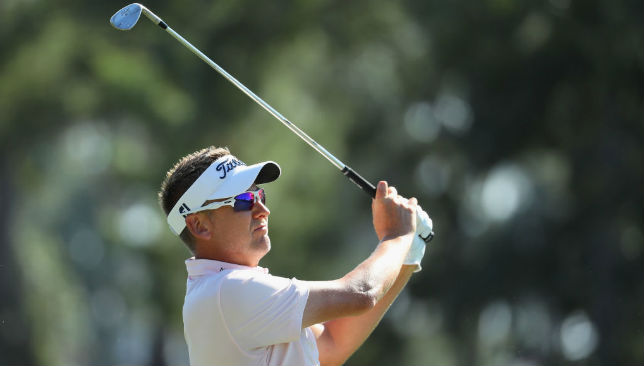
Ian Poulter, professional golfer and DP World ambassador
In the 20 years since I earned my European Tour card, the world of golf has become truly global in scale, outgrowing its continental name tag and taking us to all corners of the planet. The 2020 schedule, which kicks off in Hong Kong this November, will have us playing across Asia, Africa, Australia, North America and Europe in the Race to Dubai. Each year, the winner is crowned at the DP World Tour Championship in November.
Today, the global nature of the game is reflected in the nationalities of players on tour. China, which hosted its first European Tour event in 2003, now produces superstars like Li Haotong, who will continue to pick up tour trophies, sign major sponsorship deals and inspire the next generation of golfing prodigies for years to come.
But for the sport to take root in these new markets, people need clubs in their hands and clothes they can wear in the clubhouse. Making the fundamental elements of golf more affordable and easily available to as many people as possible will determine the future trajectory of the sport. This belief underpins my partnership with DP World, a company that provides some of the biggest multinational businesses in the world with digital logistics solutions. It
enables its partners and customers to move cargo quickly and effectively, access new markets and improve supply chain efficiencies. This benefits all industries, including golf.
The kind of digital innovation would have certainly benefited my own clothing business when I launched it in 2006. Back then, one of our biggest challenges was how to establish a presence and efficiently distribute our product across various global markets when the business was based in the UK. The cost and complexity of shipping abroad or going direct to consumers was a challenge we never truly overcame. But since partnering with DP World and learning more about what it does, I’ve seen first-hand what the future of global trade looks like; DP World is making it possible for a company of any size, anywhere in the world to create and then ship its goods to every corner of the planet with total visibility and transparency across the whole supply chain.
It’s mind-boggling stuff.
But even as a player you can appreciate the impact of golf’s globalisation. Clubs, custom-built in the US, let me tighten up on how I want each shot to fly, while the balls I get from Asia have the spin characteristics to get it close to difficult pins. Even the materials that make up my clubs and balls come from different parts of the world.
When you scale up these operations to cater for millions of golfers worldwide, you get a sense of the enormity of golf as an industry—and the key role of the supply chain in enabling that growth.
As a business owner, I tried to understand the complexity of navigating this. Getting fabrics and materials delivered at a certain time, shipping products to customers in a particular place—it wasn’t easy! As a professional golfer, I know that the only way to identify problems in a complex system is to turn to the data. Day in, day out, motion-tracking technology gives me insights into how my body is moving through each shot, revealing inconsistencies and areas for improvement. These improvements can then be measured against past performance and logged, allowing me to track my development and determine where to focus my efforts in practice.
The availability of this kind of technology has taken the professional game to new levels, but over the next decade the impact of the digital revolution on the amateur game will be even more profound. When I was starting out, I could occasionally see golf on TV, but mainly I had to learn by going to tournaments or reading books.
Today, you pick up your mobile phone and you’re watching the swings of the best players in the world, you’ve got coaches giving tuition, and you can interact with other players at different stages of their development.
This interactivity is important to our personal development as golfers, but it can also bring different groups together to play the game. Golf is an inclusive sport by its very nature, employing the handicap system to let people of different abilities play against each other. That’s a powerful opportunity.
This month I’ll be heading to Dubai for the DP World Tour Championship. As part of my work with DP World I’ll be meeting players and staff from the Emirates Golf Federation who have been hosting inclusive coaching clinics for children with and without both physical and intellectual disabilities. It’s an initiative in which I truly believe and something I am really looking forward to seeing in action. This year DP World is also hosting the first-ever
European Disabled Golf Association Tournament on the sidelines of its own championship. I think it sends a very positive message out to the world and demonstrates how our sport can be used as a platform to create a more tolerant and inclusive society.
For me, getting more people to play golf is not just great for the game, it’s also great for the players and our
partners, who are able to give back and see golf continue to grow.